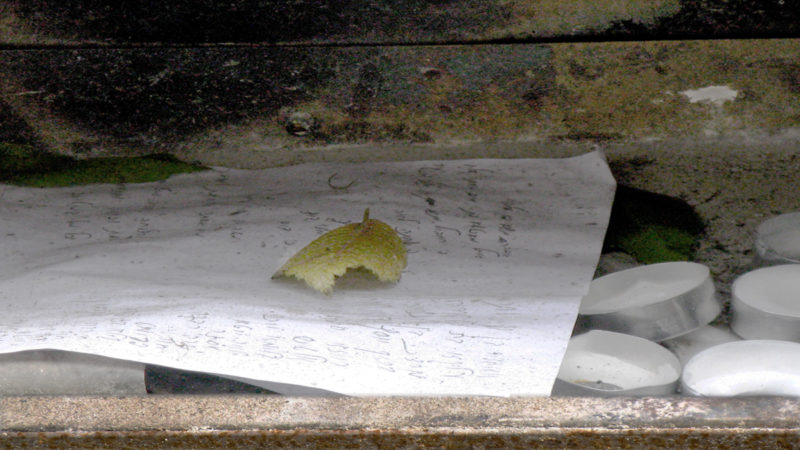
Cracow
As far as I know – and correct me if I am wrong – an orthodox Jew cannot be buried in the same cemetery as non-Jewish neighbors. She cannot be cremated, and her intact body needs to lie in the ground with a mound of earth on top. His family can visit during strictly proscribed dates, but is encouraged to avoid cemeteries and turn back to (the) living after a relatively short time. If you are a Cohen, one of the priest class, you are not allowed to enter cemeteries unless it is for the funeral and unveiling of immediate family; the place is deemed unclean. Generally you are not supposed to visit cemeteries on holidays that celebrate something; you can go on holidays that are solemn. The custom of leaving small stones on the grave sites is meant to give voice to the fact that the dead are not forgotten.

Paris
There are exclusively Jewish cemeteries in the countries I’ve visited. But I have not found a non-Jewish cemetery in Europe that did not have both Jewish and Christian graves, even in Poland; sometimes they are in specified areas still on the same grounds, but often they simply intermingle. Sometimes the grave stones are not even written in Hebrew. Often the Jewish graves are much more closely spaced since not much land was sold to them, but sometimes they are just as opulent as the rest, crypts and all.

Giessen
I have always thought that this was one of the facts, just like going to school together or serving in the military together that made so many Jews in Germany dead certain that they were not endangered until it was too late – they felt no different, really, from those around them, particularly if they did not lead religious lives.

Berlin

Cemeteries in Germany, particularly in rural areas, remind me of communal gardens. You see flocks of people puttering around, weeding, sweeping, watering, on a regular basis. As in, “It’s Saturday, we need to go rake the leaves…” There are benches to rest and contemplate – and gossip. There is always a flower shop close by that sells season-appropriate plants, and so in fall the place sprouts mums, in spring pansies, and in early summer the planted rhodies bloom. I can just imagine how it comforts you during the process of dying to think of these regular visits by so many of the people you know, bustling around in a place so familiar to you. There is something to be said for these traditions; they, of course, also require that people stay in one place, which has become so rare in our world.

And, of course, if you have to travel by boat to visit the graves, like in Venice, it becomes harder. Cemetery islands were necessary both to prevent graves from drowning and spread of disease from contaminated water.

Venice
Hardest of all, though, are for me the battlefields – graveyards of their own kind, as in this photograph from Antietam.

Antietam
And in case you wondered, yes, Jews fought in the Civil War as in so many others, more than 10.000 of them, on both sides (2:1 for the Union). Anti-semitic forces have always claimed that Jews shirked their patriotic duty in this war – current historical research puts the lie to rest.
http://www.shapell.org/the-shapell-roster/





